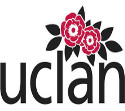 News taken from a WAIMH letter to members and colleagues: This conference was planned to take place in Tel Aviv, and organized by a joint Israeli-Palestinian Local Committee, as an active step of WAIMH to provide a template for dialogue between professionals in areas of conflict and turmoil around the world.
News taken from a WAIMH letter to members and colleagues: This conference was planned to take place in Tel Aviv, and organized by a joint Israeli-Palestinian Local Committee, as an active step of WAIMH to provide a template for dialogue between professionals in areas of conflict and turmoil around the world.
On July 20th, a letter from the Board of Directors of WAIMH was sent to members, explaining the rationale of the decision to hold its 15th World Congress in Tel Aviv, a city in the Middle East which is currently afflicted by the hostilities. The intent was then and is now to work together with both local Israeli and Palestinian colleagues on behalf of babies, their rights to a safe and peaceful existence, and their families.
Infant mental health specialists from both sides, Israel and Palestine, restated this commitment at the 2014 World Congress in Edinburgh. In their view, coming to Tel Aviv means supporting our Palestinian and Israeli WAIMH members who are jointly standing up for the infants' rights and essential needs in the middle of political conflict.
As we wrote then, we promised to carefully monitor the safety needs of all conference participants. Following the violent phase of the conflict, we are now in a phase of high uncertainty.
This uncertainty has already engendered feelings of uneasiness and ambivalence among many, including among those who understand the complexity of this deep-rooted conflict. Moreover, on the practical level, we may face a very unpleasant financial situation with last-minute cancellations of flight tickets, accommodation reservations, social events etc...
Therefore, with a strong concern for a sense of safety, together with our strong will to keep the idea of science as a bridge for dialogue and mutual recognition, the Board of WAIMH has unanimously decided to keep the joint Palestinian Israeli Local and Scientific committees but to move the conference from Tel Aviv to Prague.
Prague has been chosen because it is an easy-to-access city for our Palestinian colleagues in terms of visas, and is relatively inexpensive and affordable to our local Israeli and Arab Infant Mental Health professionals.
The conference is hosted by Israeli and Palestinian Infant Mental Health Associations
Prague May 29 - June 2, 2016.
Read more: http://www.waimh.org/i4a/pages/index.cfm?pageid=1


 This 3-day international, interdisciplinary conference is being organised by the Maternal and Infant Nutrition and Nurture Unit (MAINN), University of Central Lancashire.
This 3-day international, interdisciplinary conference is being organised by the Maternal and Infant Nutrition and Nurture Unit (MAINN), University of Central Lancashire. News taken from a WAIMH letter to members and colleagues: This conference was planned to take place in Tel Aviv, and organized by a joint Israeli-Palestinian Local Committee, as an active step of WAIMH to provide a template for dialogue between professionals in areas of conflict and turmoil around the world.
News taken from a WAIMH letter to members and colleagues: This conference was planned to take place in Tel Aviv, and organized by a joint Israeli-Palestinian Local Committee, as an active step of WAIMH to provide a template for dialogue between professionals in areas of conflict and turmoil around the world.